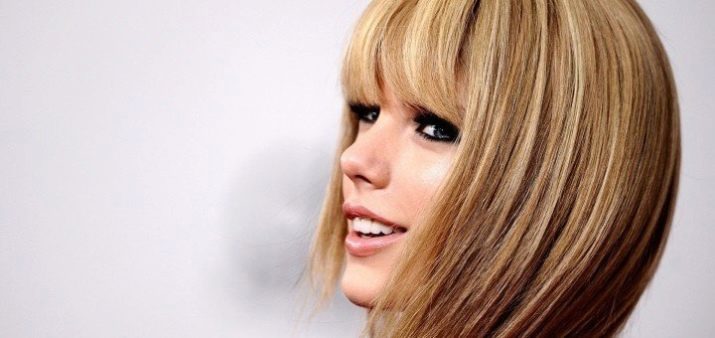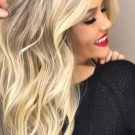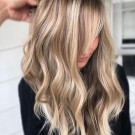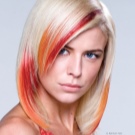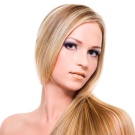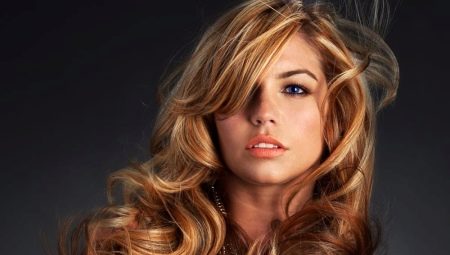If you want your curls to play with fresh colors, maximize the depth and saturation of the shades and at the same time look feminine, then colorization will be the best choice. It looks especially impressive on fair hair.
Features
Coloring is a special technique of dyeing strands with the application of several shades (usually from 3 to 15). This is the difference between coloring and highlighting, which uses a maximum of two tones.
Coloring can be performed on native and dyed hair, thin and dense, thick and rare - in any case, the hairstyle acquires additional volume and splendor, and also begins to shine with soft tints of color. Stylists note that Coloring looks best on blondes, as well as owners of light brown hair. By the way, if you alternate different types of styling, then you can highlight different shades - in this way a girl can always look in a new way, but always fresh and attractive.
Coloring technique consists in the fact that individual curls are painted in a chaotic manner, unevenly and asymmetrically.
In order to create the most natural look, an experienced stylist achieves the most smooth transition from one tone to another, while at the roots the strands are painted in darker colors, and at the ends - in bright ones.
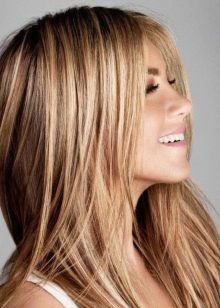
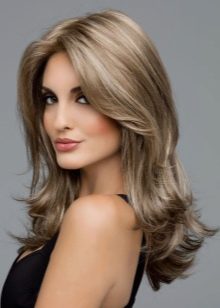
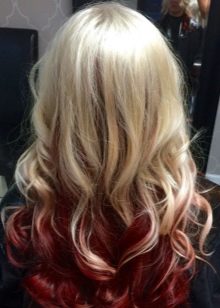
Kinds
To date, there are at least a dozen ways to colorize blond hair, so every woman can choose the one that will best match her style, color type and hairstyle features. The following techniques are most in demand.
- Horizontal This coloration is also called transverse. In this case, the curls are painted parallel to the direction of their growth. Usually the hair is visually divided from the roots to the middle - one color is applied here, as a rule, a little darker, and the ends are tinted into another. The result of such a paint application is the effect of slightly regrown hair, which for several seasons has been considered one of the most TOP trends.
- Partial (zonal). Coloring involves the allocation of a separate area on the pile and its further staining. Most often, bangs or temporal areas are painted. Thus, you can smooth the oval of the face and emphasize the geometry of the hairstyle.
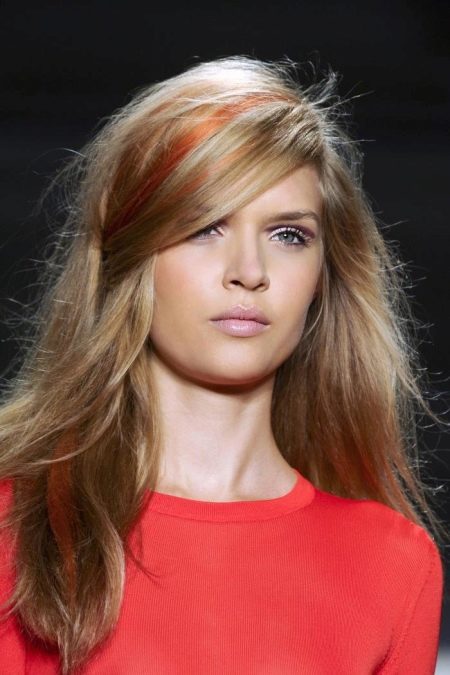
- Longitudinal (vertical). In this design, individual locks are painted, each in a different color, selected by the stylist. Today, blondes give preference to Italian, California and Venetian highlighting, bronding and balayazh staining techniques.
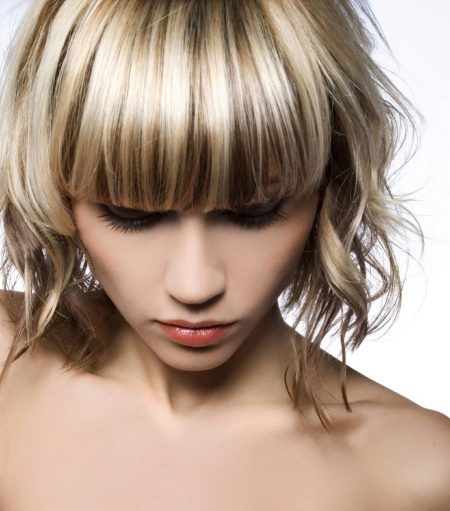
- Stencil. The most popular and creative color scheme, it is suitable for decisive and daring women who are not afraid to attract the attention of others. In this case, the master uses a stencil, with the help of which he carefully distributes the coloring paste on the surface of the hair and creates original ornaments for it - leaves, patterns, waves, as well as spots and other patterns. It should be noted that this staining is not suitable for everyone - it can be performed only on perfectly smooth and even curls.

- Complete. It implies painting the entire mop with the main shade and creating spectacular accents in other colors throughout the head. The result is a stylish and expressive contrast effect.

- "Salt and pepper" - This is a very effective technique, but it is suitable only for owners of light brown and ash curls, as well as gray-haired women. At the same time, individual strands are given a platinum, pearl or steel shade, and in order for the coloring to become even more effective, the tips are additionally tinted in shades of a darker color.
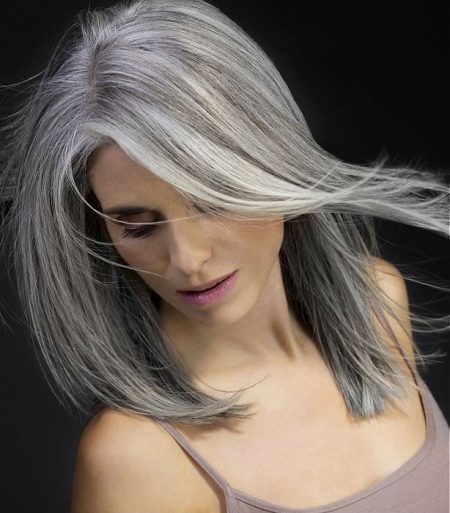
Advantages and disadvantages
Most blondes prefer such a stylish method of coloring as coloring. This is not surprising, because the method has many advantages in comparison with painting in one or two colors.
- The technique belongs to the most gentle, since here only part of the hair is exposed to the aggressive effect of paint, while the root zone is not affected.
- It is much faster and easier than all other staining options.
- Looks harmoniously on strands of any length and structure, is suitable for natural and colored curls, in the presence of gray hair it effectively masks it.
- It makes soft overflows on the hair, so that the curls acquire additional splendor. If hair is dyed in colors close to natural, then the color is deeper and more saturated, and if curls are painted in contrasting tones, then you can radically change your image in minutes.
- Visually rejuvenates the face, tightens the oval, distracts attention from the onset of age-related changes.
- It does not require frequent correction - as it grows, the difference between native and colored strands is almost not visible, therefore you can visit a stylist no more than 3-4 times a year.
- If the experiment is unsuccessful, there is always the opportunity to dye your hair in other shades.
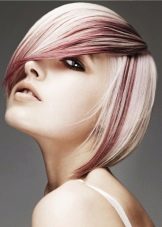
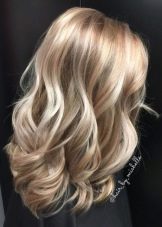
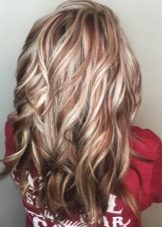
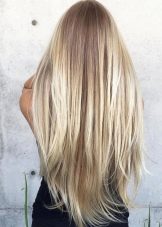
Despite such a large number of advantages, coloring has obvious disadvantages:
- the difficulty of doing it yourself at home;
- the probability of errors when selecting a shade - in this case, the result will look unnatural and will give an untidy look
- if during the procedure the oxidizing agent was incorrectly selected, then when clarifying the curls, a yellow tint is often obtained.
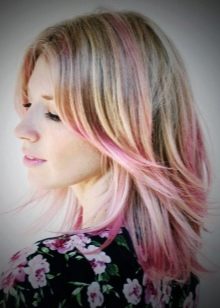


Shade selection
With the behavior of coloring of fair hair, it is very important to choose the optimal shade.Here you need to consider many different factors - the age of the lady, the tone of native hair, skin and eyes, especially haircuts and the desired effect.
For the youngest girls, any shades are suitable - both close to their native color, and creative, but for older women, preference should be given to a calmer natural color.
For women with pale skin and light eyes, cold pure white, ashen, platinum and pearl tones are suitable, but if the hair colors in dark shades, then blue-black color will do. At the same time, painting can be carried out both with the design of sharp contrasts, and with smooth overflows.
For owners of dark skin and dark eyes, warm shades are suitable - golden, honey, wheat or cognac, caramel, black color and chocolate also look good.
The most extraordinary personalities or representatives of any subcultures should pay attention to such shades as yellow, pink, strawberry, burgundy, purple, as well as blue, green and red.
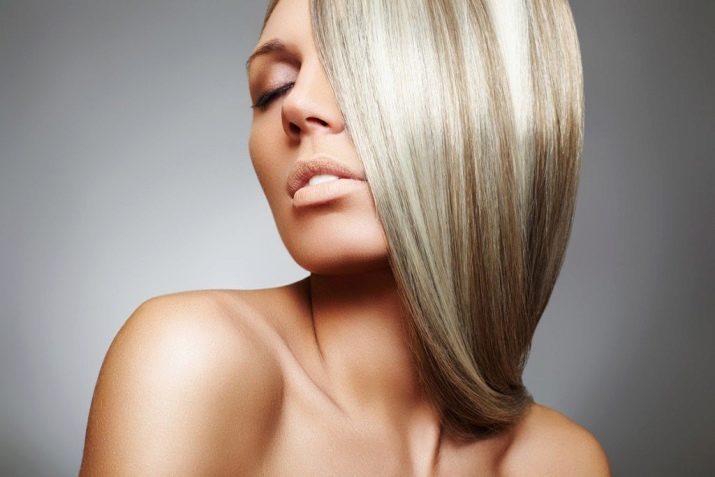
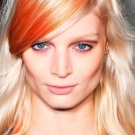

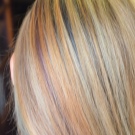


Home dyeing
In most cases, the coloring of long and short hair is carried out in beauty salons, but the simplest techniques can be completely done independently at home.
In stages, all manipulations are performed as follows.
- In a glass or porcelain bowl, paints are diluted, and for each color, a separate container is needed.
- The skin near the hairline is covered with oily cream to protect it from staining.
- Hair is divided into 4 zones - two temporal, occipital, and also on the crown. For maximum convenience, each is fixed with special clamps.
- The strands selected for dyeing are separated with a comb with a narrow separator or a knitting needle, laid on a piece of foil and a paste is applied, after which the foil is folded along the edges and in half so that the coloring emulsion does not leak.
- The brush is thoroughly washed, after which a second shade is applied to the hair, and so is repeated with all the colors. Leave it for 25-30 minutes, then wash it thoroughly with shampoo and treat it with air conditioning.
Care
To colorize as long as possible please you with its bright saturated shades, After staining, the strands must be properly looked after:
- To wash your hair, you should choose only special shampoos for colored hair;
- if possible, reduce the use of irons and pads;
- before going outside in the summer, hair should be protected with a hat or a scarf;
- re-staining should be done no earlier than a month after the first procedure.
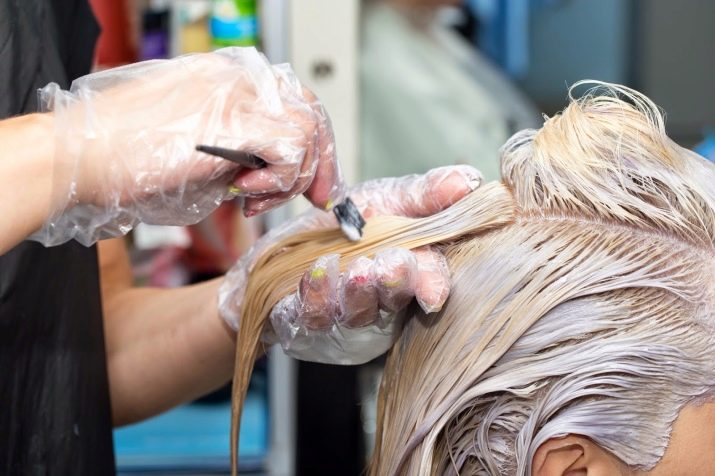
Beautiful examples
Coloring on a blond looks very stylish and spectacular. It is always at the peak of popularity thanks to an exceptionally gentle and feminine image, which is created thanks to the design on the hair of smooth overflows. It is no coincidence that this technique is chosen by many movie stars and show business all over the world.
